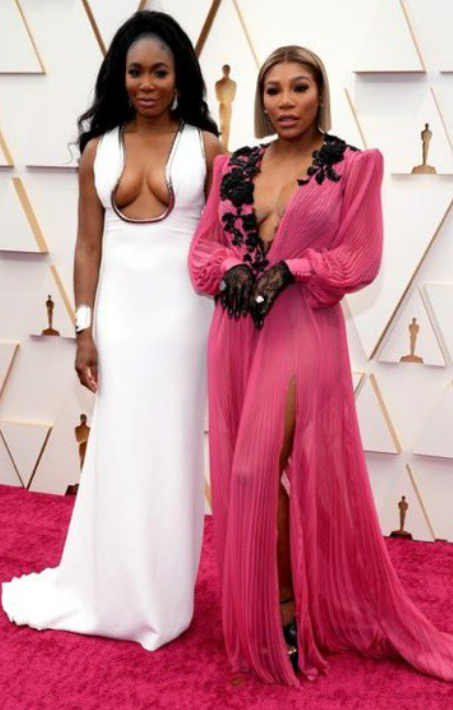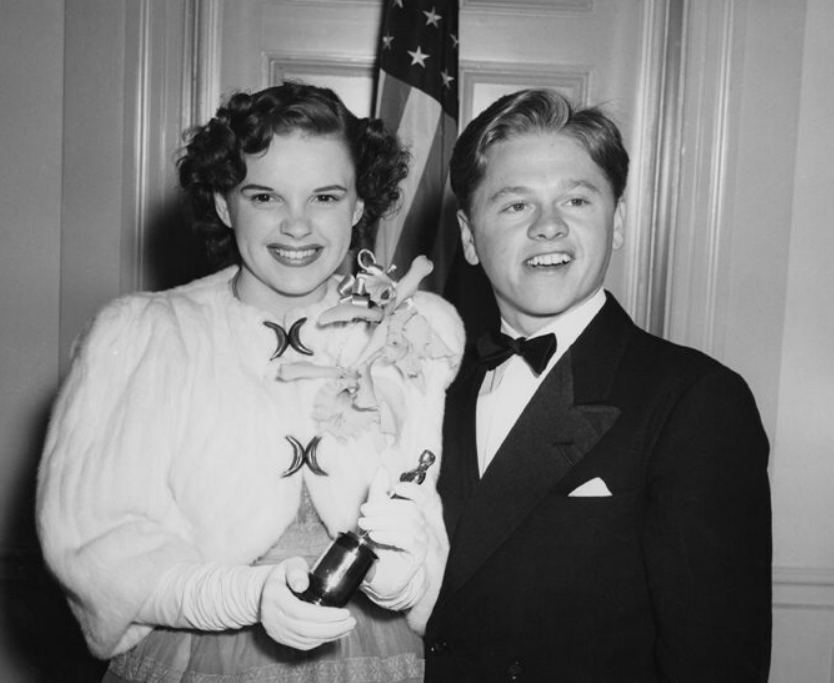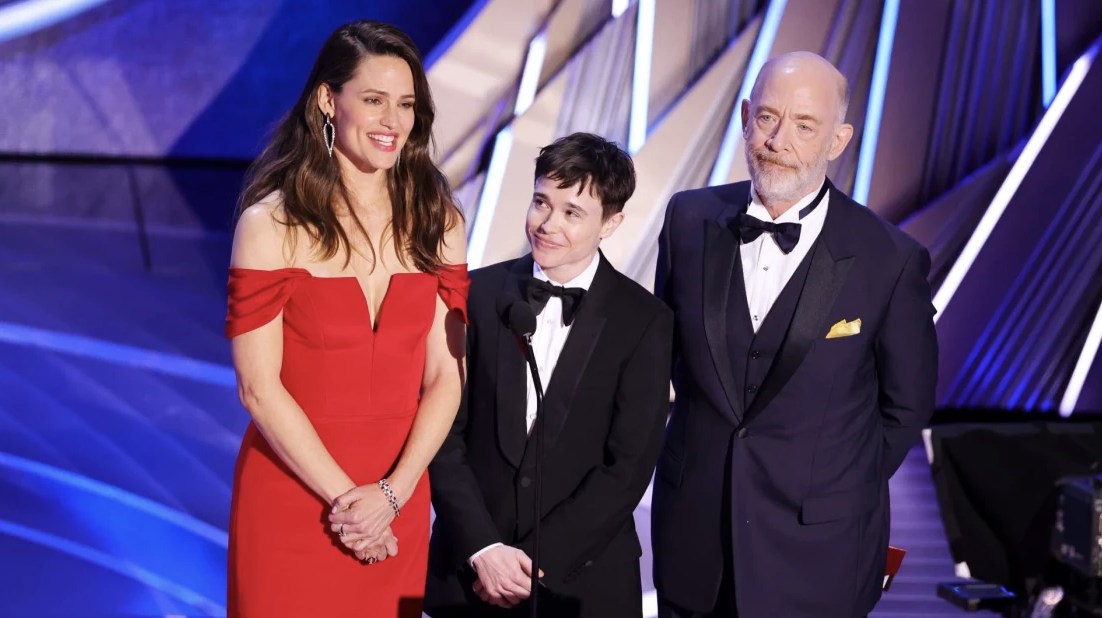
For women, watching the Oscars can be frustrating. No matter how many gains women make from one ceremony to the next, it often feels like Oscar night drags us backwards, into a regressive past where men dominate and women look pretty on the sidelines.
This year, the Academy Awards offered a few pleasant surprises, including the Oscar for Best Director going to New Zealander Jane Campion for The Power of the Dog. Only two other women have won this prestigious honour in 94 years of Oscar ceremonies: Chloé Zhao for Nomadland, last year, and Kathryn Bigelow, in 2009, for The Hurt Locker. What makes this year’s winner even more remarkable is that Campion’s competitors included two-time Best Director Oscar winner Steven Spielberg (for his remake of West Side Story) and Kenneth Branagh (for Belfast), who already has seven Oscar nominations in various categories to his credit, including two for Best Director. Another welcome surprise was the Best Picture Oscar winner, CODA, directed by a woman: American writer/director Sian Heder.
Other aspects of Oscar night were less unusual, beginning with the hypersexualized women’s fashions. Many of the actresses — not to mention co-hosts, performers, and female guests — who were photographed and interviewed on the red carpet (or attending the popular Vanity Fair Oscars after party) demonstrated that the double standard regarding men and women’s fashions remains alive and well. Women’s outfits revealed all, via thigh-high slits, plunging V-necks, strapless bodysuits, bikini-like tops and bottoms, tulle overlays and see-through fabrics, crop tops that barely covered breasts, and mostly backless dresses. These outfits conveyed the message to female viewers that to be successful in Hollywood, women must self-objectify, presenting themselves as sexualized objects for men’s viewing pleasure. Despite the actress-led #MeToo movement and “Time’s Up” endeavour, Hollywood women have declined to push back against objectifying industry norms, lest it challenge their own bottom line.
These kinds of outfits leave women vulnerable to “wardrobe malfunctions,” as evidenced by an image of Venus Williams’ exposed nipple circulating on social media. Why women continue to opt to spend evenings in discomfort, worried about an embarrassing shift in fabric or a fall due to impractical clothing and footwear choices, considering their insistence they be respected as men are, is a conundrum.

Male guests, on the other hand, were mostly well covered — many in tuxedos. Some even wore three-piece suits. Most men did not dress much differently than they did in early days of Oscar ceremonies. It is women’s dress codes that seem to have changed most substantially, regressing from fashions that allowed the audience to focus on the award rather than on body parts.

Co-host Amy Schumer’s gown, for instance, offered a deep plunging V-neck that displayed much of her breasts. Megan Thee Stallion performed in a dress barely covering her crotch, with her stomach and breasts mostly exposed. Beyoncé wore a similarly short, sheer dress and rhinestone garter. This year’s Oscars’ outfits appear to indicate that, for women, “glamorous” has been redefined to mean “as exposed as possible.”
Sexism at this year’s Oscars was not limited to hypersexualisation. Co-host Regina Hall said she was “excited to be representing black women who are standing proud,” and Wanda Sykes, who is a lesbian, added, “Yes, and I’m living out loud.” In response, Schumer said, “And I am representing unbearable white women who call the cops when you get a little too loud,” a reference to the misogynist “Karen” meme. Later in the evening, Hall, dressed up as Tammy Faye, joked to Sykes, “I always wanted to play a crazy white lady.” This new misogyny may be trendy, disguised as woke progressiveness, but does nothing for the status of women.
Maintaining the theme of woke misogyny, Oscar attendees took the opportunity to virtue signal their adherence to a queer ideology that seems intent on erasing women. In her acceptance speech for Best Supporting Actress, 31-year-old Ariana DeBose called herself “openly queer,” leaving us wondering if she is disguising her lesbianism to appease modern anti-woman progressives, and how this is revolutionary in this day and age. Argentinian actress Stephanie Beatriz, who voiced the lead character (Mirabel) in Disney’s Encanto (winner of the Best Animated Film Oscar), told E! Live on the red carpet that there should be more “queer people” at the Oscars, whatever that means.
Laverne Cox, a 49-year-old man who claims to be a woman, was on the red carpet for E! Live, interviewing actors and actresses before the awards ceremony began, including Kristen Stewart, who responded, “You too!” when Cox called her “stunning.”
During her acceptance speech for her Best Actress award, Jessica Chastain discussed suicide in the context of “the LGBTQ community, who oftentimes feel out of place with their peers.” She implied this was due to “discriminatory and bigoted legislation that is sweeping our country with the only goal of further dividing us.” It is unclear what legislation Chastain was alluding to, however, given the woke agenda promoted throughout the evening and the fact that there is no “bigoted” legislation “sweeping the country” restricting gay rights, one can presume she was talking about legislation preventing children from being transitioned or restricting men’s access to women’s spaces. There is no evidence that this kind of legislation is contributing to suicides, in any case.
The actress formerly known as Ellen Page, who recently had an elective double mastectomy and changed her name to Elliot, was a presenter for the Best Original Screenplay award, alongside two of her Juno co-stars, Jennifer Garner and J. K. Simmons. Before they presented the award to Kenneth Branagh for Belfast, a clip from Juno, showing Page portraying a pregnant teenager looking for a couple to adopt her baby, was projected on a giant screen. The fact that she now identifies as a man, and that apparently this identity is supported by Hollywood, made this clip all the more strange. Page, sporting a tuxedo, was likely the most covered woman there. It seems it becomes acceptable for women not to self-objectify only if they claim to be male.

Page and Cox were not the only ones at the Oscars to promote transition: Trans-identified actor, MJ Rodriguez, was interviewed by Catt Sadler and Phoebe Robinson for Vanity Fair on his way to the after party and used the occasion to virtue signal about the “trans” community.
In their opening monologue, Schumer, Sykes, and Hall reframed Florida’s anti-grooming bill as the “Don’t say gay” bill. In fact, House Bill 1557 — “The Parental Rights in Education Act” — signed into law on March 28, prevents schools from withholding children’s records from their parents, particularly as regards sex and gender identity, and attempts to prevent schools from instructing kids in kindergarten through grade three about gender identity and sexual orientation. This is in response, in large part, to schools socially transitioning children without their parents’ knowledge.
The liberal media reframed the legislation as an “anti-gay” bill, and clearly Hollywood has gone along with this manipulation unthinkingly.
Imagining herself to be combating homophobia, Sykes told the audience: “We’re going to have a great night tonight. And for you people in Florida, we’re going to have a gay night,” at which point the three women began chanting “Gay, gay, gay, gay, gay… “ Ironically, gender identity ideology has manifested as an attack on lesbians, turning young same-sex attracted women into “men” and insisting women who only wish to date other females are “transphobic” and “bigoted.” Many gays, lesbians, and bisexuals have distanced themselves from the T and the Q to form LGB Alliances in numerous countries, including the United States. In light of this, the Academy’s “woke” narrative may be viewed less sympathetically down the road. Those who fancy themselves “on the right side of history” by toeing the line are in fact not so “right.”
The most memorable moment of the evening was of course Will Smith’s narcissistic efforts to white knight himself, slapping Chris Rock onstage in defense of his wife, Jada Pinkett Smith. Rock’s joke about Pinkett Smith’s bald head, due to her alopecia, was tepid, and the fact Smith’s embarrassing outburst went unchallenged seems to say a lot about how the Oscar’s “woke” veneer has in fact moved us back decades.
Alline Cormier is a Canadian film analyst and retired court interpreter with a B.A. Translation from Université Laval. In her second career she turns the text analysis skills she acquired in university studying translation and literature to film. She makes her home in British Columbia and is currently seeking a publisher for her film guide for women.
